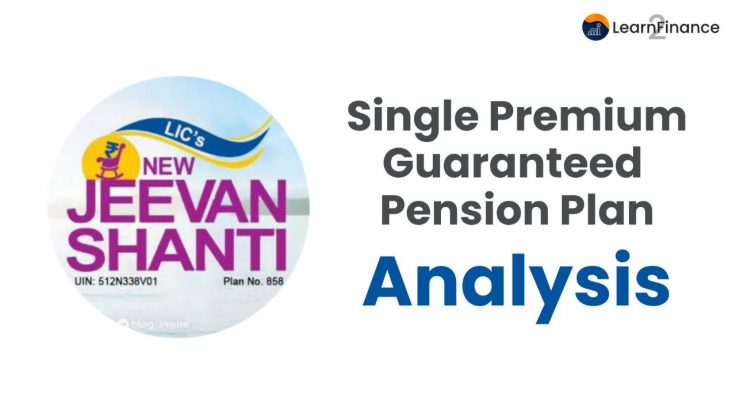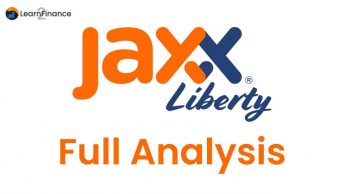On October 21, 2020, LIC introduced their new pension plan, LIC New Jeevan Shanti. It is a delayed pension plan with a single premium. Pension rates are guaranteed at the time of purchase.
LIC introduced Jeevan Akshay VII, an instant annuity plan, a few weeks ago (LIC Jeevan Akshay VII Pension Plan (857) – Features, Benefits, and Eligibility). Due to declining interest rates, LIC discontinued the previous Jeevan Shanti Plan and introduced the new Jeevan Shanti. Let’s have a look at what it has to offer.
What exactly is a deferred pension plan?
Allow me to give you an example. Assume you’re 40 years old. You are purchasing this product with the goal of starting your retired life at the age of 50. This 40- to a 50-year term is therefore referred to as a deferral period. It is referred to as a retirement term of the post-deferment period beyond the age of 50. For clarification, please see the picture below.
Eligibility for LIC New Jeevan Shanti (No.858)
Let us now examine the qualifying requirements for purchasing LIC New Jeevan Shanti (No.858).
| Minimum age | 30 yrs |
| Maximum age | 79 yrs |
| Minimum deferment period | 1 yr |
| Maximum deferment period | 12 yrs |
| Minimum vesting age | 31 yrs |
| Maximum vesting age | 80 yrs |
| Joint life | Yes |
| Minimum purchase price | Rs. 1,50,000 |
| Maximum purchase price | No Limit |
| Minimum pension | Monthly – Rs 1,000Quarterly – Rs 3,000Half Yearly – Rs 6,000Yearly – Rs 12,000 |
| Online purchase | Yes with a discount of 2% |
| Reduction in pension rate | Half Yearly – 2%Quarterly – 3%Monthly – 4% |
| Loan | Yes |
The maximum deferral term is 12 years, while the maximum vesting period is 80 years. The second thing you should be aware of is the loss in pension whether you chose a half-yearly, quarterly, or monthly pension. The policy can also be surrendered.
Benefits of the LIC New Jeevan Shanti (No.858)
Annuity Benefits:
- Deferred Annuity for Single Life:- During the deferral period, nothing is due. After the deferral period, you will get the pension in accordance with the choice you choose for as long as you are alive.
- Joint Life Deferred Annuity: During the deferral period, nothing is due. After the deferral period, you will get the pension in accordance with the choice you choose as long as the primary or secondary holder is alive.
During the deferral period, death benefits are payable:
The higher of the following will be payable:
- Purchase Price+Additional Death Benefit-The entire annuity amount payable till the day of death.
OR
- 105 per cent of the purchase price (Death benefit=(purchase price*Annuity rate per annum paid monthly)/12)
This additional benefit on death is only available during the deferral period, not when you are providing the pension.
Options for death benefits following the deferment period:
You have the option of selecting one of three types of death benefits to be paid to your nominee.
- Lump-Sum Death Benefit: The lump sum payment will be paid to your nominee in one lump sum.
- Annuitization of Death Benefit: In this case, the nominee might acquire the LIC New Jeevan Shanti (No.858) in his name. Your nominee has the option of purchasing the pension plan in full or in part.
- In Payments: Your nominee can receive the death benefit in 5, 10, or 15-year instalments. These payments might be made monthly, quarterly, semi-annually, or annually.
Should you buy LIC New Jeevan Shanti (No.858)?
In India, if you attach two phrases GUARANTEED or TAX-FREE on a financial product, people will purchase it like hot cake. LIC referred to this product as a GUARANTEED pension. As a result, investors are naturally interested in this characteristic. However, before purchasing such annuity contracts, consider the following factors.
- Inflationary Pressures: Keep in mind that the pension in this plan will not rise as you become older. It will remain in place. As a result, the pension you would receive today may be worthless in a few years owing to inflation.
- Taxation: Whatever pension you receive from this product is taxed according to your tax bracket. As a result, your post-tax returns may be far lower than what you actually get. If you are at the highest tax rate, such items are not for you.
- Annuity Age: If a person enrols in this plan at the age of 30, he must choose a pension when he reaches the age of 42. (to the maximum). Do you require a pension at the age of 42?
- Regarding the question in Features: If you pick monthly, half-annual, or quarterly annuities, you will earn less pension than if you choose yearly. This, I believe, is the most difficult obstacle. Because individuals acquire such items just to ensure a steady monthly income. The maximum term of deferral is set at 12 years. This implies that after 12 years, you must begin getting your pension. What if you want to work later in life?
Such products are appropriate for people who are eager for a GUARANTEED income stream, are unconcerned about taxation or inflation, and are willing to lock their money away.
The returns on annuities are difficult to forecast. Because it all depends on how long you live once the deferral period is over. Furthermore, if this plan is acquired by a young man, the returns will definitely be lower, but the rates may appear tempting to those who are older.
Conclusion:
Annuity products are excellent for consumers who want a steady source of income rather than being concerned about market or interest rate changes. However, such products are not worth relying on because they fail to outperform the index in the long run. As a result, rather than depending only on such products, I recommend that you look at PMVVY, SCSS, Tax-Free Bonds, and RBI Floating Rate Bonds for your immediate needs. At the same time, if you want an income stream in 10 years or so, a combination of equities and debt based on your risk tolerance will be the best inflation hedge.








